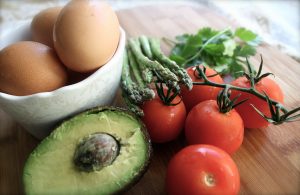Parkinsons Disease and Your Diet

Can Diet Help Persons With Parkinsons Disease?
Parkinsons disease (PD) is a neurodegenerative disorder that results from the decay of nerve cells in the brain. The illness characterizes by motor symptoms such as bradykinesia, tremors, muscle rigidity, and postural instability. Parkinsons disease accompanies by a whole range of non-motor symptoms that significantly affect the quality of life of patients.
The cause of Parkinsons disease is unknown. In some people, there is a genetic susceptibility that in certain situations of exposure to some environmental factor that can lead to illness. Symptoms occur because of a disproportion of two molecules in the brain, dopamine, and acetylcholine.
Some studies show that eating habits affect the risk of developing Parkinsons disease and its outcome.
Considering the accompanying symptoms, especially those related to indigestion (constipation) is clear that the use of certain foods could significantly affect the quality of life of patients.
Patients should follow a diet rich in fresh fruits, vegetables, and whole grains. They need to use protein and unsaturated fats in moderation and reduce saturated fats and sugars. Fiber intake is desired, digestion is a part that can also suffer due to low bowel motility, so it is recommended to eat foods that are rich in dietary fiber.
Below, read more about diets that can help those persons with Parkinsons disease.
MEDITERRANEAN DIET
The Mediterranean diet (MeDi) has attracted attention in recent years due to the growing number of evidence linking MeDi to a lower risk of neurodegenerative diseases. This diet is characterized by a high intake of vegetables, legumes, fruits, and grains; high intake of polyunsaturated fatty acid -PUFA (mainly as olive oil), in compared to saturated fatty acids; moderately high fish intake; moderate intake of dairy products, meat and poultry; and regular but reduced ethanol consumption, primarily as wine, usually during meals.

The various nutrients found in foods typical of MeDi have a powerful impact on memory, concentration, thought processes, and emotional state. They stand out in particular salmon, virgin olive oil, dark chocolate (with at least 60% cocoa), almonds and berries.
Undoubtedly, the food you consume affects your body and the health of your brain, and MeDi stands out as the best diet for brain health.
THE DASH DIET
Hypertension and other diseases of the cardiovascular system arising from hypertension are risk factors for neurodegenerative diseases, such as Parkinsons disease. This diet is characterized by a reduced proportion of animal products (red meat, full-fat cheeses), a higher proportion of fruits, vegetables, and dairy products with reduced fat content.
MIND DIET
The primary goal is the prevention of dementia and neuroprotection. The key characteristics of this diet are a high proportion of fruits and vegetables, foods of plant origin, with a minimum percentage of saturated and trans fats.
In people with Parkinsons disease, fluid intake during the day is very important. It is necessary to take water in several sips, in small amounts throughout the day. Of the vitamins, it is recommended to take additional vitamins C and E, and of the minerals zinc, magnesium, and calcium.
The diet of patients with Parkinsons disease should be varied and balanced. The general advice for a healthy diet, can and will have a beneficial effect on the course and outcome of Parkinsons disease.










